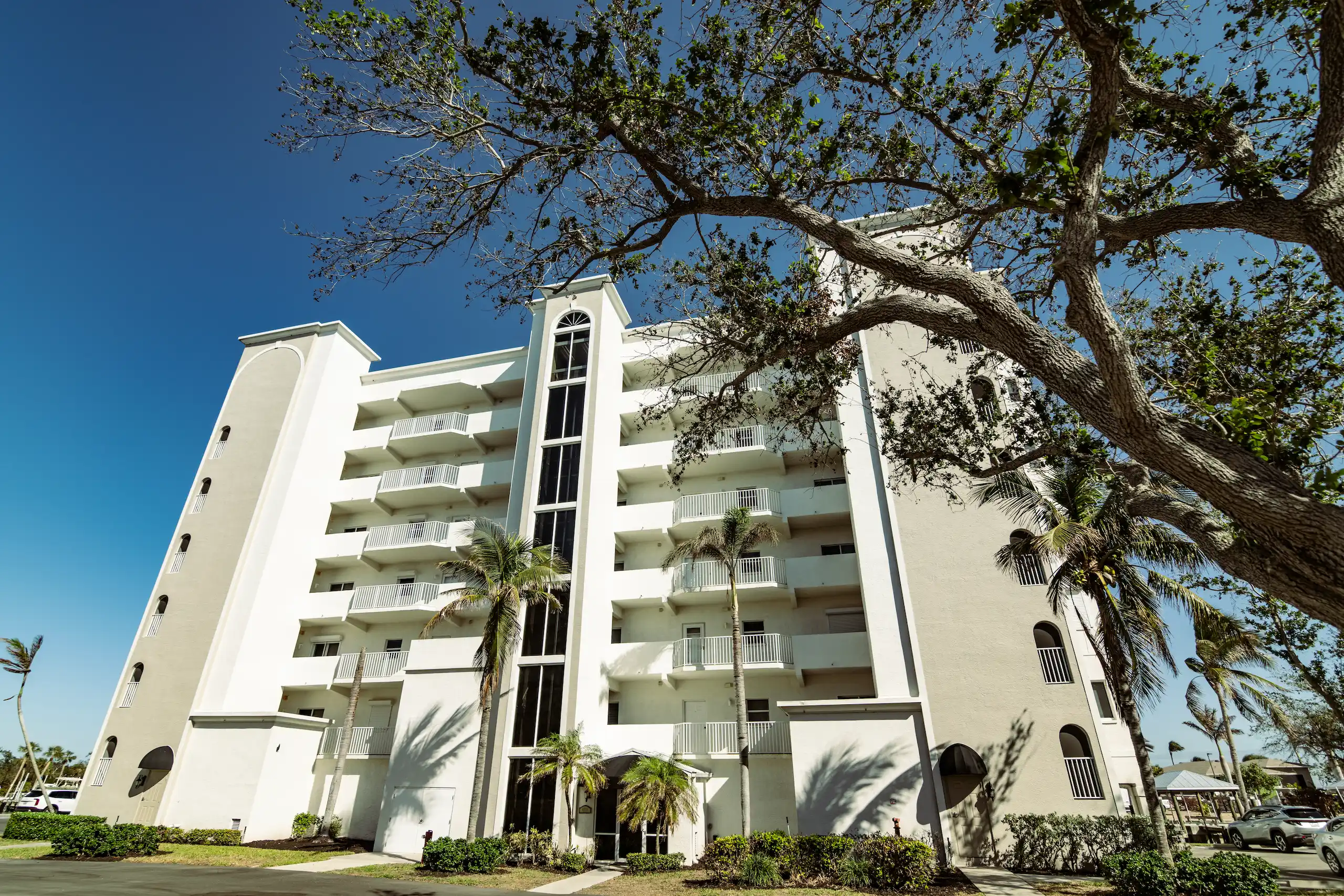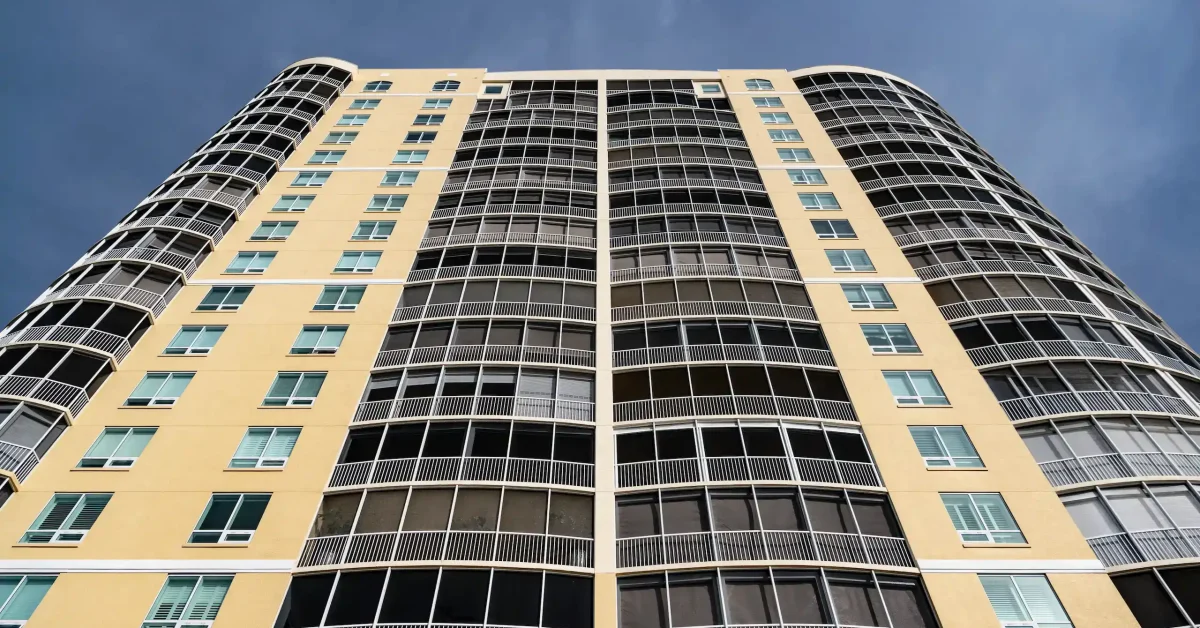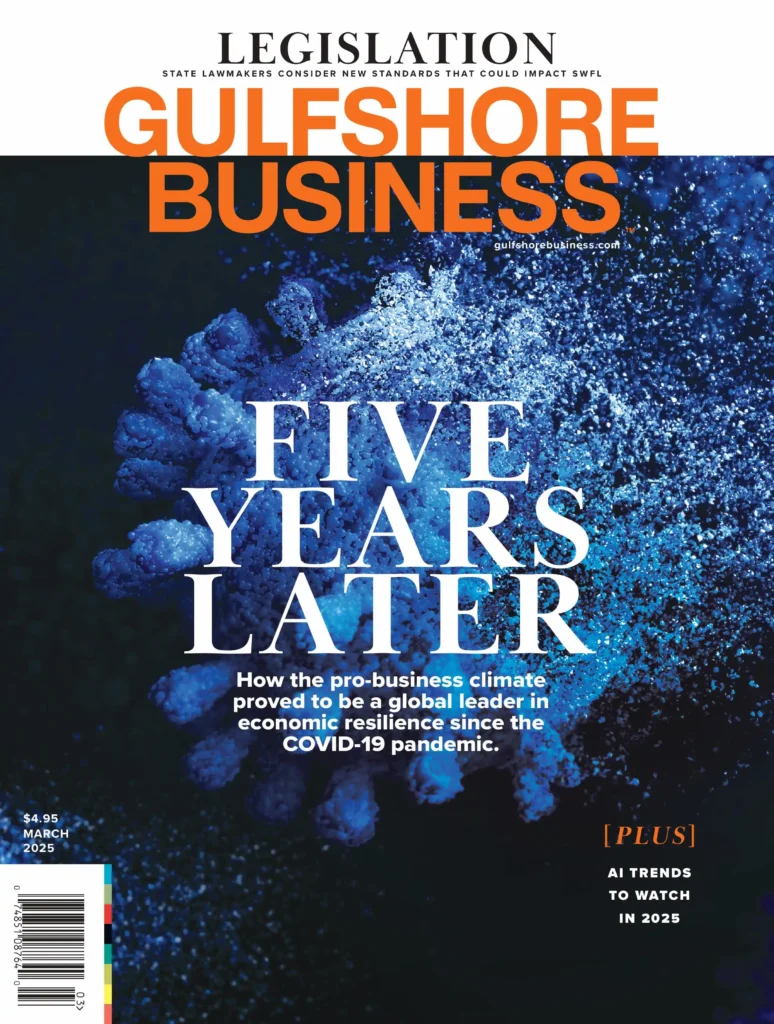A new law has transformed the condominium market in Florida, forcing owners to change their financial plans. The laws have been prompting many owners to sell their condos now, because the bills have come due and they cannot afford to pay them.
The Condo Rights Bill already has taken on a trio of nicknames. House Bill 1021, passed in 2021 unanimously by the state’s House of Representatives and Senate, is also known as the “DeSantis Condo Law,” “Condo 3.0” and the “New Condo Law.”
Written after 98 people died when the 12-story Champlain Towers South condo in Surfside on the east coast partially collapsed in June 2021, the new law requires condos of three or more stories to have milestone inspections. It also requires condo associations to have structural integrity reserve studies, elect leadership, keep records, maintain financial literacy and transparency, levy fines and issue notice and meeting requirements.
All of that costs money. And all of that is affecting the market for aging condo buildings that were built prior to 1996 or are approaching 30 years in age.
 Stan Stouder, a commercial real estate broker, doesn’t sell condos. But he lives in one, Mastique, which has views of the Gulf of Mexico and Estero Bay. He does not like the unintended consequences of the new laws.
Stan Stouder, a commercial real estate broker, doesn’t sell condos. But he lives in one, Mastique, which has views of the Gulf of Mexico and Estero Bay. He does not like the unintended consequences of the new laws.
In 2022, Mastique fourth-quarter association fees cost $2,625. In 2024, those fees rose to $3,800, a 45% increase in two years. Stouder noted a lot of those fee increases were because of insurance increases; complying with the new laws could cause further increases.
“I think you have unanimity in the vote because of the Surfside disaster,” Stouder says. “I think the intentions are good, but the implications are never known until the law is applied. I think the implications need to be adjusted to reality. There’s got to be hundreds or thousands, if not millions, of condos in Florida.”
The owners of those buildings should not be financially punished, Stouder said, because of the Surfside disaster.
“There were glaring structural deficiencies in the Surfside example,” he says. “Visible, sizable cracks that would give anybody with common sense cause for concern. To apply that same, super hyperbolic engineering scrutiny on properties that are 30 years old on the coast, seems to be something that could have been modulated. To paint the entire product type with the same brush is an overreach. It’s doing a lot more damage than I think the elected officials intended. I don’t think they intended to put anybody in economic jail. And that’s what this is: It’s economic jail.”
In Naples, condo sales in 2024 were down all year long from 2023. Sales plummeted by larger margins even after interest rates finally began to fall.
In August 2024, 241 Naples area condo units were sold, which was down 28.5% from 2023. The average price fell, as well, from $485,000 to $479,000, a drop of 1.2%, according to statistics tracked by NABOR, the Naples Area Board of Realtors.
In September 2024, 250 Naples area condos were sold, which was 20.6% down from 2023. The average price continued to drop, from $470,000 to $450,000, a drop of 4.3%.
“Over here, take the Naples Continental Club,” says Joe Belz, a real estate agent with Compass in Naples. “That’s a project that’s still not open from [Hurricane] Ian. They’ve had huge assessments, and there’s a lot of people in that building who can’t afford those assessments. They need to reach a point where they can sell in order to pay the assessments.”
 Doug Grant, a real estate agent with the Grant Group in Naples, said he has heard of $1 million units selling for $850,000, because condo supply is exceeding demand.
Doug Grant, a real estate agent with the Grant Group in Naples, said he has heard of $1 million units selling for $850,000, because condo supply is exceeding demand.
“Certainly some of these older owners, they’re going to have to sell, because they’re on a fixed income,” Grant says.
Chris Loffreno, a Fort Myers Beach-based real estate agent with Loffreno Real Estate Inc., said he doubted some condo associations would be able to afford complying with the new law.
“It’s a different market,” Loffreno says of Fort Myers Beach. “We’ve also been through three hurricanes here. The law is for everybody’s safety, but it can be very costly. I don’t think they thought about the cost factor and how it will impact people who are on fixed incomes. They’re on life support right now, these condos. The market is really slow right now. I expect it to pick up at some point, because it is the beach.
“It’s hard. It’s a difficult thing. But things will get better. We’ll have new structures built to code. It will be more of an upscale community.”
Riviera Club measures 12 stories and has 81 units, many of which overlook the beach and the Gulf of Mexico. Terry Hilgenberg, treasurer of the homeowners association, said the condo’s clubhouse has yet to be built two years after Hurricane Ian.
“It wiped out our clubhouse,” he says. “Completely. We’re still waiting for the permitting process. But we are grappling with the issue of ‘If we build the same thing, are you going to have the same experience (with the next storm)?’
“There are differences of opinion. We’ve got 81 different opinions.”
Condo owners effectively must either become financial planners or adhere to the advice set forth by them. They must budget — and likely raise — homeowners association fees and then allocate them to pay for the newly required inspections, and any necessary construction costs to fortify the buildings.
At Casa Marina on Fort Myers Beach, financial literacy already has been in place, said condo owner and association member Larry Bromme. But hurricanes Ian, Helene and Milton also have tested those finances over the past three years.
Casa Marina has three six-story buildings and one five-story building, combining for 92 owners. Each of them pays $2,400 per quarter in fees.
The new law could complicate a purchase, Bromme said, especially if those fees need to rise.
“When a person comes in and wants to buy a unit at Casa Marina, a person who doesn’t know anything about condos and doesn’t know anything about the funding,” Bromme says, “I can tell a prospective buyer: ‘We are fully funded. We have X amount of dollars in reserves.’ You should be asking: ‘How much do you have in reserves?’ Or do you buy the thing and get hit with a $50,000 fee?”
Matt Kuisle of Reserve Advisors, based in Milwaukee, Wisconsin, has an office in Sarasota. He does reserve studies for a living. He meets with various condo associations, examines their finances and advises them on how to proceed with the future in mind.
If repairs are needed, somebody such as Andy Schrader of Recon Response Engineering gets hired to fix the condos.
“It’s a physical and a financial analysis for 30-plus years,” Kuisle says of what Reserve Advisors does. “Capital repair needs and replacement costs so they can budget adequately for those items as they come up. They can specially assess or try to get financing.”
Some condo associations, however, go another route: “The do-nothing option,” Kuisle calls it.
In the case of the Champlain Towers, the association did not have funding in place to make necessary repairs, he said. By the time it sought new funds, the building collapsed.
“It’s coming throughout the world, but especially in Florida,” Kuisle says of changes to condominiums. “A lot of them have themselves in a pretty bad financial position. We try to help them avoid that. It’s really unfortunate if you just bought a condo, and then you have to clean it up; that’s unfortunately what happened in a lot of cases.”
For condos that fail milestone inspections, hope is not lost, Kuisle said.
“There’s all types of strengthening,” he says. “We call it concrete restoration. We can cut out concrete and rusted steel. There’s absolutely work that can be done with those buildings. It’s expensive, but much less expensive than building a new building. The more diligent you are about it — before they become giant ‘root canals’ — the better off you are.”
Inspecting aging condos, Bromme said, reminded him of inspecting aging cars — or aging people making a trip to the doctor.
“I can’t express how important it is to have a good management company,” Bromme says. “In my opinion, it’s going to be a very, very expensive thing. Not necessarily because the condos are in bad or terrible condition. But if you go into a doctor, they’re going to find things wrong with you.”
Bromme said he planned on staying put on Fort Myers Beach. He has endured too many cold winters in Minnesota to go back for more. But he understands why others are leaving their condominiums behind in light of the new laws.
“If you went out today and looked at a car that’s, say, 10 years old and brought it to an expert, they’re pretty much obligated to find everything wrong with it that they can,” Bromme says. “I think it’s an overreaction.”
 Ups and downs
Ups and downs
Peter Zalewski knows a thing or two about the Florida condominium market; since the mid-1990s, he has been brokering them.
Velocity on sales in the Tri-County area of Miami, Broward and Palm Beach counties — where he is based and where there are about 610,000 condo units — was as low in 2024 as it has been since the Great Recession. Zalewski shared a timeline of Florida condo trends and his outlook for the future.
Mid-1990s: Florida high-rise condominium market emerged.
2005: Peak of activity. Also the year Hurricane Wilma traveled across South Florida, stalling the market.
2006: Peak of pricing.
2007-10: Great Recession put many condo units into foreclosure.
2011: Condo market began to recover, and construction projects started again. Land prices fell, but banks required 50% financing before construction instead of 20% financing.
2016: Market began peaking again. “We had maximum development going on,” Zalewski says.
2018: Interest rates rose, housing supply went down.
2020: COVID-19 pandemic spread. “No transactions; we’re all going to die,” he says. “Everything freefalls.”
2021: Newcomers flooded Florida. Condo market went into overdrive. “Everybody comes from the northeast,” Zalewski says. “They come from the West Coast. The spike in velocity — number of sales quadrupled. There was just this tremendous surge.”
2024: The condo surge ended.
“I think what’s going on is, there was a lot of confusion in 2024 about what the new laws would mean,” Zalewski says. “There wasn’t a great understanding of it. An old product would come on the market and might seem like a great deal. Uninformed buyers would come and buy it because they wanted a piece of Florida. Now, they’re realizing they were suckered. When times are great, you’ve got 300 people outside for the open house, and you get 80 offers. You don’t have the same gullible buyer today because of the amount of attention that’s come recently.”
Where do we go from here?
The market has cooled, but Zalewski called it a “blip.” He said it’s temporary.
“I think where we go from here is Florida is probably going to be a very predictable place to invest in a condominium, simply because of transparency,” Zalewski says. “Transparency did not exist until up to this point. Is it a stable building? Is it a stable unit? That transparency is coming. Probably not until 2026 or 2027. Once all of that is done, it will be a very predictable space in which to invest.
“Up until then, it’s going to be chaos, because of the lack of information and because of the disinformation that’s out there.”
Zalewski said 2025 will be a great time to invest in a condo — for those with a higher risk tolerance.
“My recommendation to investors is you want to do your pricing off of 2019,” Zalewski says. “You want to eliminate everything we experienced during the pandemic. Use that (2019) for your real pricing. Because anything after that — 2020 everything fell, and 2021 everything spiked. I would tell you 2019 would be more reflective of its true value.”





